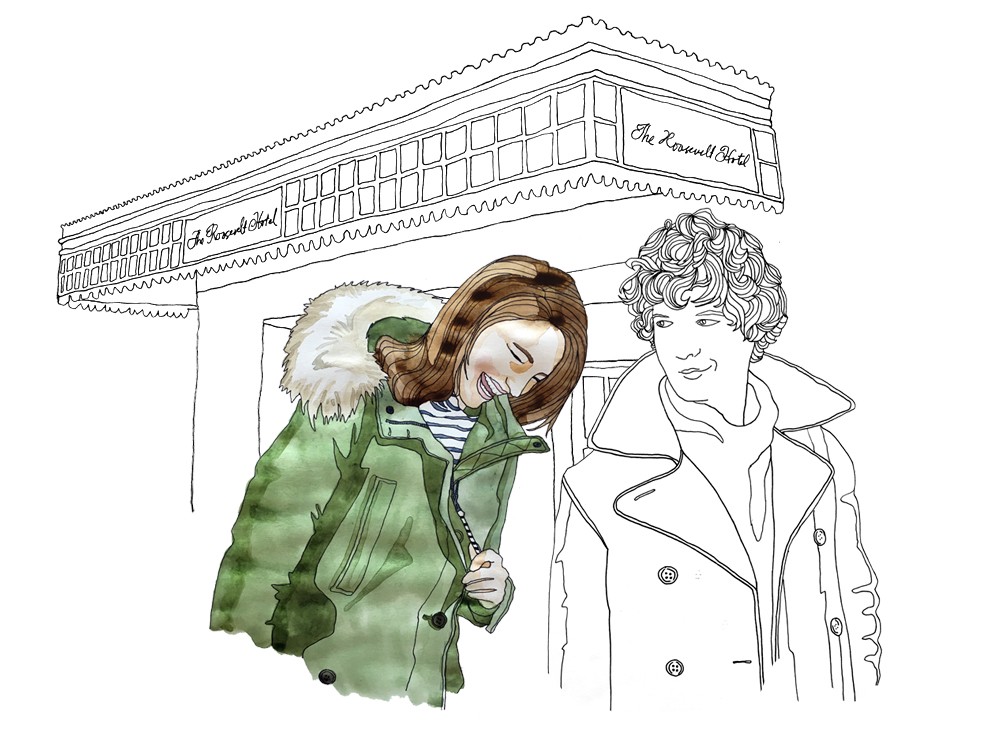East 45th Street, New York

Illustration: Forsyth Harmon
I saw you out the window of an Uber pool, from which melancholy comes easy. My fellow passenger was a young Middle Eastern guy speaking extremely quietly into his phone. J’ai compris Maman… Non, non, j’ai compris… Ne t’inquiete pas. The app had told me “You are riding with Quentin” and it seemed a sort of violation to know his name, too intimate. I looked out the window in a very studied and committed way, hoping to invest this stance with complete absorption so as to grant him a sense of privacy. But I couldn’t not hear, and the quieter he spoke, the more my ears strained.
When he’d appeased her enough, and hung up, he stared out of his window and I stared out mine and at least one of us was thinking about how many other mothers might be telling their brown children to be careful tonight. The president-elect had just appointed a white supremacist as his chief strategist.
We’d shared this car into Queens, through the Midtown tunnel, into the city and its traffic. By now the car was edging in increments of hand spans, a little lurch forward every few minutes, bumper to bumper. Slow progress in the evening rush. Slower than the people on the sidewalks, whose quickly passing bodies seemed to blur in the dark evening and the storefront lights. I reminded myself they were all real, each one.
I thought of that speech I loved in Anomalisa, Charlie Kaufman’s stop-motion film. The protagonist, the fuzzy-skinned little puppet-man, eerily real and human, speaking in his humdrum British voice as he addresses a customer service conference: “Each person you speak to has had a day. Some of the days have been good, some bad. Each person you speak to has had a childhood. Each has a body. Each body has aches.”
You were a young white woman in Uggs and a green parker jacket and your day, I think, had been a good one—few aches. You and your boyfriend were walking and talking fast, some place to be. But then he said something to you, grinning with the anticipation of your reaction. You doubled over with laughter right outside the Roosevelt Hotel — just stopped, in the stream of foot traffic, bent over so far you were basically squatting — hands on your knees, eyes shut, convulsing, overcome. You made laughing look like giving birth. And he was already a pace ahead so he stopped too, turning back and giggling at the sight of you, waiting for you to recover while the hotel porters raised their eyebrows and smiled at the spectacle you made.
I smiled too. I didn’t begrudge you this: that it was easier for you to laugh tonight.
